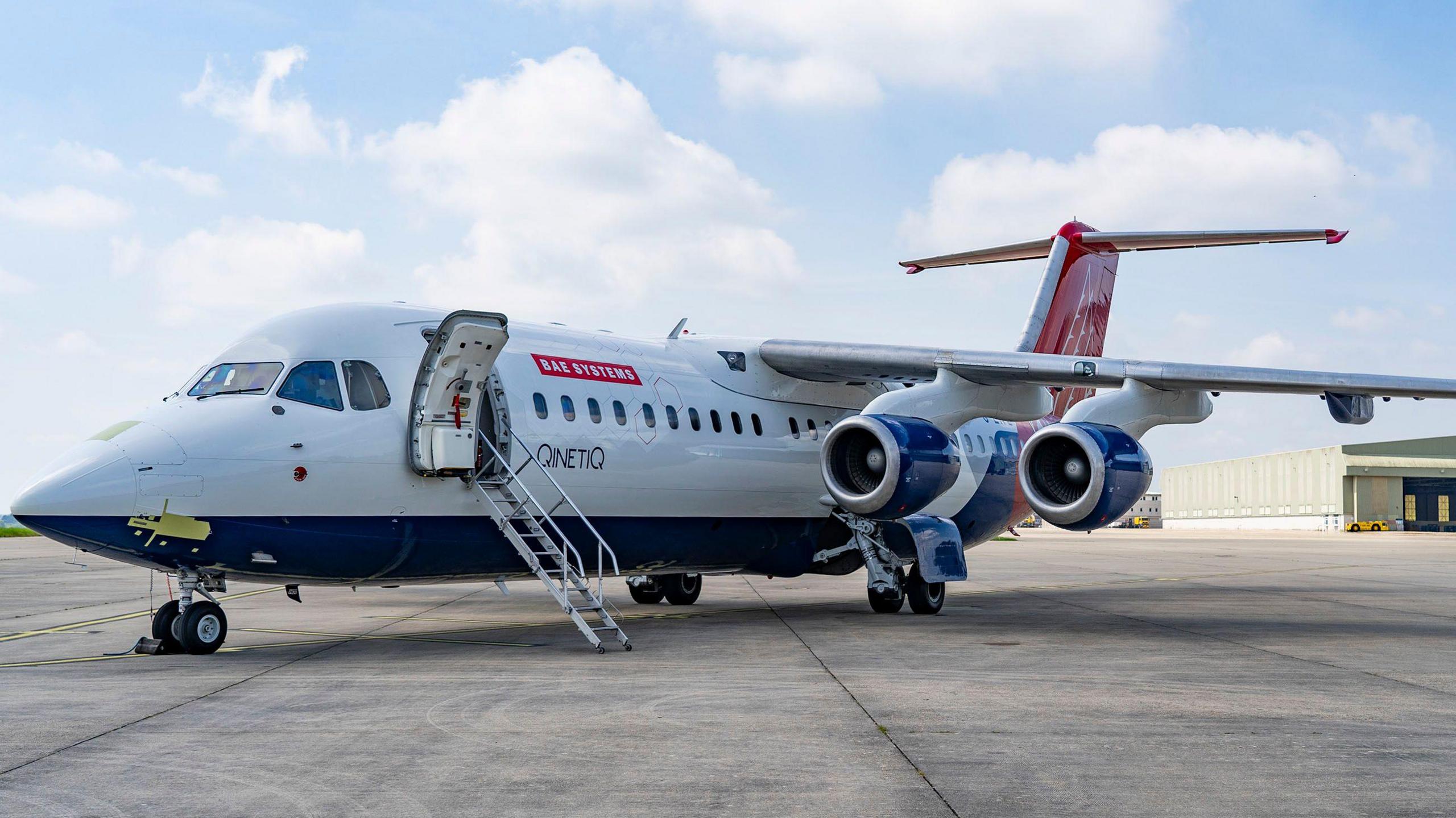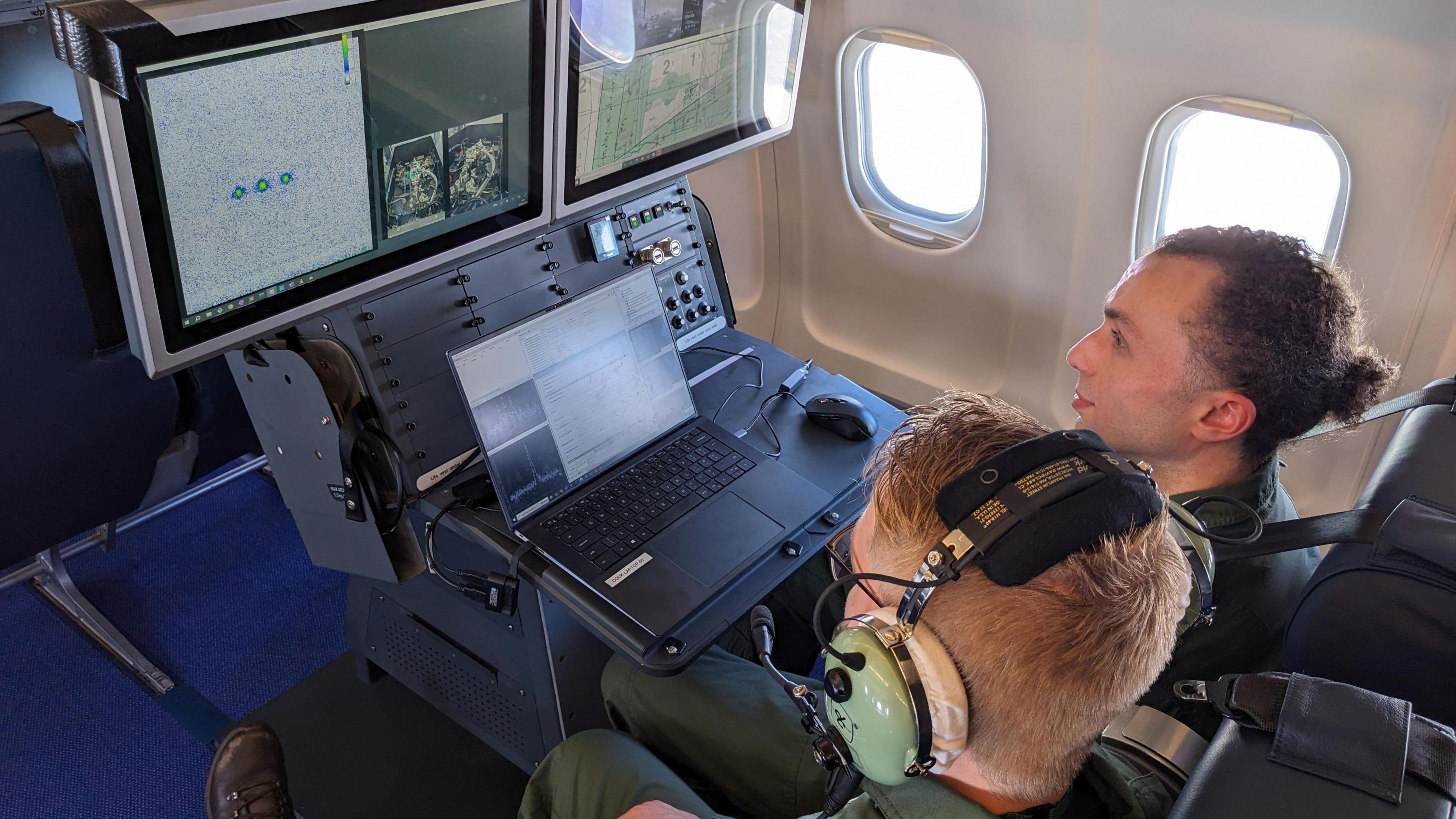Unjammable navigation tech gets first airborne test

QinetiQ’s Airborne Technology Demonstrator jet.
- Published
A UK aircraft has tested ground-breaking quantum technology that could pave the way for an unjammable back-up for GPS navigation systems.
The government, which helped fund the research, said it was the first test of its kind to be publicly acknowledged.
While GPS is satellite-based, the new system is quantum-based - a term used to describe tech that is reliant on the properties of matter at very small scales.
Science minister Andrew Griffith said the test flights were "further proof of the UK as one of the world leaders on quantum".
GPS is a critically important system, used on planes ships and road vehicles and by the militarily, as well as helping your smartphone determine your location.
But signals from GPS satellites can be jammed, or "spoofed" to give misleading location data.
In March, an RAF plane carrying UK Defence Secretary Grant Shapps had its GPS signal jammed while flying close to Russian territory.
Finland's flag carrier Finnair even had to suspend daily flights to Estonia's second largest city, Tartu, for a month, after two of its aircraft suffered GPS interference.
Experts have accused Russia of causing disruption to satellite navigation systems affecting thousands of civilian flights.
Many military technologies, including drones and missiles, use GPS.
But GPS jamming can also be carried out on a small scale, for example by people driving vehicles their employers have fitted with GPS trackers.

Analysts looking at data on board the plane
GPS relies on receiving signals from space, but a GPS satellite emits no more power than a car headlight, meaning it can easily be jammed, experts say.
The new system uses a group of atoms, cooled to -273C, almost as cold as its possible to get. Because they are carried on the plane itself, they can't be interfered with by spoofing or jamming.
The aim is to use these atoms to measure the direction the plane is pointing in and its acceleration.
All of that combined could be used to determine where the plane is with a high degree of accuracy.
It is called a quantum system because that is the name of the science of very small particles.
Individual atoms are mind-boggling small - a hair is about a million atoms wide - and working on this scale is difficult enough on the ground.
The flight demonstrated that these atoms could be used in the very limited space, and generally challenging, environment of an aircraft.
Russia blamed for GPS interference affecting flights in Europe
- Published2 May 2024
Shapps's plane GPS 'jammed' near Russian territory
- Published14 March 2024
According to the government, this is the first test of this type of technology in the UK on an aircraft in flight, and "the first such flights worldwide that have been publicly acknowledged".
The trials, which concluded earlier this month, involved quantum tech firm Infleqtion, in collaboration with aerospace companies BAE Systems and QinetiQ.
But at present, despite the tiny scale of quantum technology, the equipment itself is large. Henry White, part of the team from BAE Systems that worked on the project, said for that reason he thought the first application could be aboard ships, "where there's a bit more space".
However, he told the BBC that in five to ten years it could be the size of a shoebox, and a thousand times more accurate than comparable systems.
There has been concern about the vulnerability of shipping to attacks on satellite navigation.
Mr White sees the system primarily as a back-up to GPS.
"You're not going to get rid of your satellite systems, they are very convenient," he said.
Signals from GPS satellites can also be used as an extremely accurate way of telling the time. The test flight also took a quantum clock on board to see if it could work as a backup if GPS were blocked. In the lab, Mr White said the best quantum clocks can be incredibly accurate.
"If you started them at the beginning of the universe, they may have lost a second by now," he said.
Mr White believes the test is a "major milestone" but acknowledges it will take time before the technology is in active use.
Ken Munro of Pen Test Partners, a cybersecurity firm that works in aviation, said the test was a "big step in the right direction", but added "it would still be 10 to 20 years before we see any practical implementation", in commercial aviation in the UK.